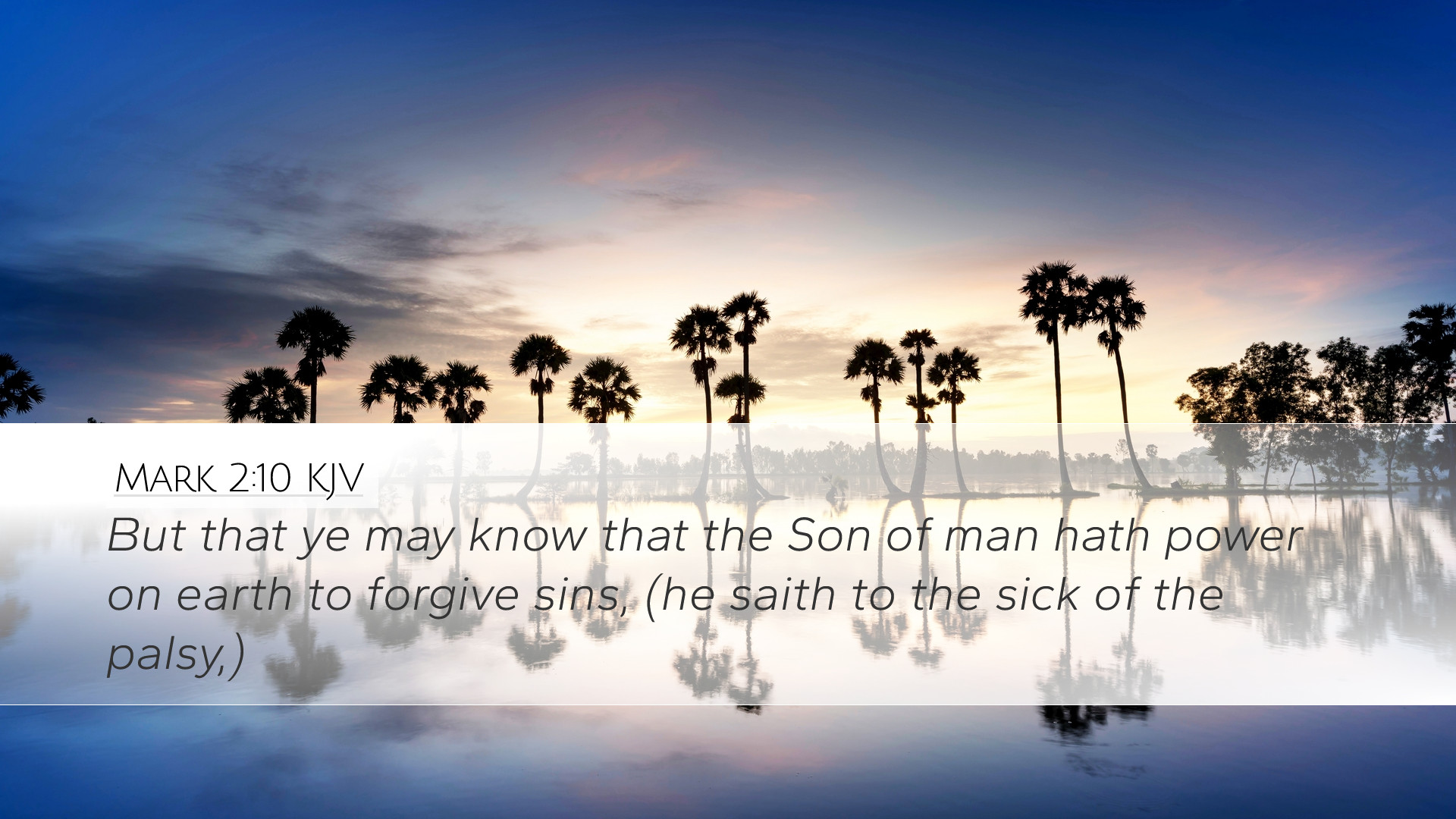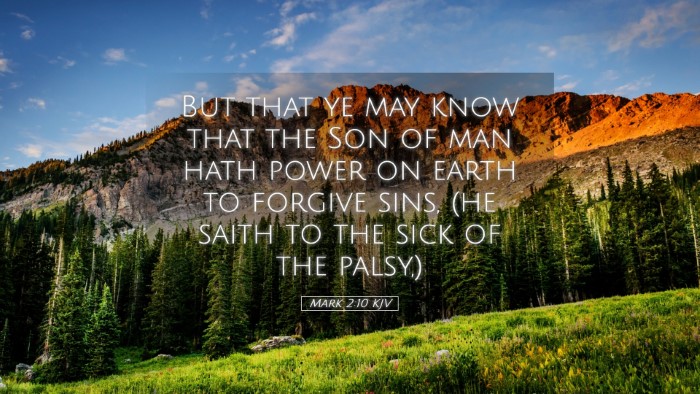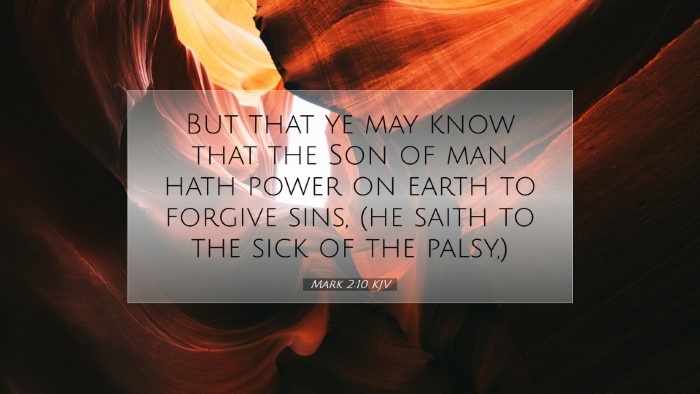Old Testament
Genesis Exodus Leviticus Numbers Deuteronomy Joshua Judges Ruth 1 Samuel 2 Samuel 1 Kings 2 Kings 1 Chronicles 2 Chronicles Ezra Nehemiah Esther Job Psalms Proverbs Ecclesiastes Song of Solomon Isaiah Jeremiah Lamentations Ezekiel Daniel Hosea Joel Amos Obadiah Jonah Micah Nahum Habakkuk Zephaniah Haggai Zechariah MalachiMark 2:10
Mark 2:10 KJV
But that ye may know that the Son of man hath power on earth to forgive sins, (he saith to the sick of the palsy,)
Mark 2:10 Bible Commentary
Commentary on Mark 2:10
Mark 2:10 states: "But that you may know that the Son of Man has power on earth to forgive sins...” This verse is pivotal as it encapsulates key theological truths regarding Christ's authority and the nature of His mission.
Contextual Analysis
This verse is situated in the narrative where Jesus heals a paralytic. The episode highlights not only Jesus' miraculous abilities but His authority to forgive sins, thereby asserting His divine identity.
Matthew Henry on Mark 2:10
Matthew Henry emphasizes the boldness of Christ in declaring His power to forgive sins. He notes that this declaration was made in the presence of teachers of the law who were skeptical of Jesus' claim. This speaks to the conflict between earthly authority and divine authority.
- Divine Authority: Henry illustrates how Jesus, being the Son of Man, embodies both the human experience and divine power.
- Foundation of Forgiveness: The ability to forgive is central to Jesus' ministry and is foundational to our understanding of salvation and grace.
Albert Barnes on Mark 2:10
Albert Barnes provides insight into the implications of Jesus’ declaration. He points out that the phrase "Son of Man" signifies Jesus' humility and His connection to humanity. Barnes suggests that:
- Humanity and Divinity: Jesus, although fully human, possesses authority that is divine, thus bridging the gap between God and man.
- Power of Forgiveness: Barnes underscores that forgiveness is both an act of compassion and a demonstration of divine power, establishing Jesus as the ultimate mediator.
Adam Clarke on Mark 2:10
Adam Clarke discusses the cultural and religious implications of forgiveness in the context of first-century Judaism. He annotates that:
- Sociocultural Context: In Jewish thought, only God could forgive sins, making Jesus' statement radical and challenging. Clarke notes that this created tension with the Jewish leaders.
- Authority of the Son of Man: Clarke also highlights that Jesus asserts His authority here, suggesting that He has come not only for physical healing but predominantly for spiritual redemption.
Theological Reflections
The declaration of Jesus in Mark 2:10 is a profound affirmation of His identity. Its implications stretch beyond the immediate narrative and into the core of Christian theology. Here are several reflections:
- Christology: This verse contributes to Christological discussions by affirming that Jesus is both Savior and Sovereign. His ability to forgive underscores His divine nature.
- Salvation and Authority: The verse illustrates the integral relationship between divine authority and the reality of salvation. It speaks to the believer's assurance that sin can be forgiven through Christ.
- Mission of Christ: The authority to forgive sins reveals the heart of Jesus' mission—restoration and healing are central to the Gospel message.
Practical Applications
For pastors, students, and theologians, the implications of Mark 2:10 call for a deeper understanding and engagement with the nature of forgiveness:
- Encouragement for the Penitent: This verse offers hope to those who seek forgiveness, affirming that Jesus has authority to heal both body and soul.
- Challenge to Unforgiveness: Understanding Christ’s authority to forgive challenges believers to embody this in their relationships, urging them to forgive others.
- Mission Focus: In outreach, emphasizing Christ’s power to forgive sins is crucial for evangelism, highlighting the foundational nature of grace in the Gospel.
Conclusion
Mark 2:10 stands as a profound declaration of Jesus' power, addressing both His identity and His mission. The combined insights from Matthew Henry, Albert Barnes, and Adam Clarke augment our understanding of this crucial verse. As we reflect on the implications of Christ’s authority to forgive sins, we are called to deeper faith and a more profound practice of forgiveness in community.


